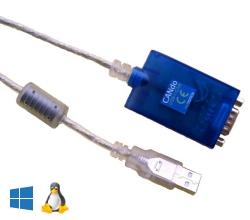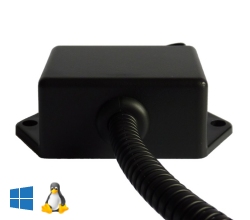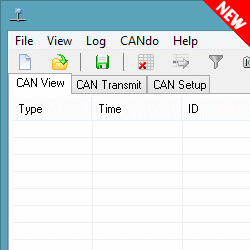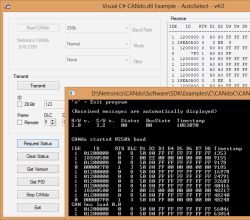|
|
|
|
|||||||||||||||||
 |
 |
 |
|||||||||||||||||
|
|||||||||||||||||||
|
|
|||||||||||||||||||
|
|
|
|
|||||||||||||||||
 |
 |
 |
|||||||||||||||||
|
|||||||||||||||||||
|
|
|||||||||||||||||||
|
|
||||
|
|
 |
|
CANdo & CANdoISO Interfaces USB to CAN Bus The CANdo USB to CAN (Controller Area Network) interface provides a direct connection between a PC & an embedded CAN bus, via USB. Together with the CANdo Application it provides a simple, but powerful means of analysing any CAN network. CANdoISO is a new galvanically isolated version of CANdo, with improved performance. CANdo supports both CAN 2.0A & 2.0B standards and is fully compatible with USB v1.1, 2.0 & 3.0. For further information please click here... |
|
|
|
 |
|
CANdo AUTO Module USB & Analogue to CAN Bus The CANdo AUTO Module is a rugged, waterproof USB to CAN interface, with two analogue sensor inputs & a DC power input. The module is capable of operating either tethered to a PC, as a CAN bus interface, or as a standalone CAN bus sensor/simulator module, when powered from a 12 or 24V DC supply, such as a vehicle battery. CANdo AUTO supports both CAN 2.0A & 2.0B standards and is fully compatible with USB v1.1, 2.0 & 3.0. For further information please click here... |
|
|
|
 |
|
CANdo Application [ Windows v5.4 ] [ Linux v1.1 ] The CANdo Application is an easy to use PC based CAN bus analyser that communicates directly with the CANdo Interface. The CANdo Application provides full control over the CANdo Interface & supports both standard & extended CAN messages, concurrently. All messages are colour coded for ease of identification & precision timestamped. Multiple CANdo Interfaces on the same PC connect to multiple instances of the CANdo Application allowing for more complex analysis. For further information please click here... |
|
|
|
 |
|
CANdo SDK [ Windows v4.2 ] [ Linux v2.1 ] The CANdo SDK provides a simple means of incorporating the CANdo Interface into any Windows or Linux based program, using a simple API (Application Programming Interface). Using this API together with the CANdo Interface, gives the program the ability to receive & transmit CAN messages over a CAN bus. The SDK consists of two DLLs for Windows & a single shared library for Linux, full documentation of the API & examples written in C, C++, C#, VB, Delphi & Python. For further information please click here... |
|
|
|
||||
|
|
||||
|
|
||||
|
|
|
|
|
|
|
|
© 2006-26 Netronics Ltd.
|
|
||
|
|
||||